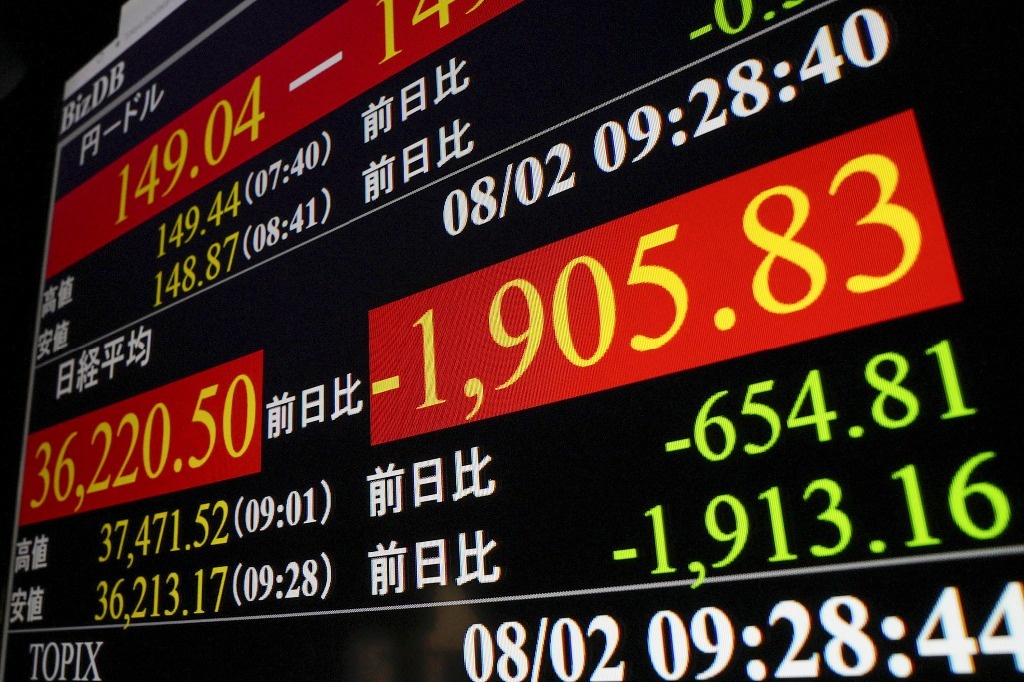A day after falling 12.4 percent, the steepest drop since 1987, the Nikkei index, made up of the 225 largest companies on the Tokyo stock exchange, rebounded sharply in the first minutes of trading on Tuesday.
Japan’s main stock index opened with a gain of 10.52 percent on Tuesday, reaching 34,353 points. If this rebound continues, the Nikkei will end a streak of three consecutive sessions with a negative trend.
The gains in Asian trading followed sharp losses on Wall Street, but not on the same scale as Monday’s meltdown in Japan.
The yen is at its highest level in seven months
The Nikkei is now close to where it was a year ago. The largest percentage gain in the history of this indicator was 14.2 percent in October 2008.
The Bank of Japan (BoJ), which raised interest rates to their highest level since 2008 on July 30, sent the yen strengthening to a seven-month high, putting pressure on stocks.
Markets around the world were also spooked by fears of a US recession, fuelled by a weaker-than-expected jobs report.
The yen fell more than 0.20 percent to trade at 144.56 units per dollar. Meanwhile, the Mexican peso, in international operations, appreciated to around 19.2976 units per dollar.
South Korea’s Kospi index jumped more than 3 percent, while the small-cap Kosdaq gained more than 4.5 percent. South Korean markets were temporarily halted on Monday after they fell 8 percent.
Mainland China’s CSI 300 opened flat, while Hong Kong’s Hang Seng Index rose 1.03 percent. Australia’s S&P/ASX 200 opened 0.27 percent higher.
Oil prices also rose, with Brent crude up 1.30 percent to $77.28 a barrel. West Texas Intermediate crude rose 1.63 percent to trade at $74.11.
What happens in the Asian session will determine the mood with which the markets in the United States and Mexico will start on Tuesday. However, uncertainties have not left the financial markets.
#Japanese #index #worst #day #rate #hike
– 2024-08-07 19:21:13
